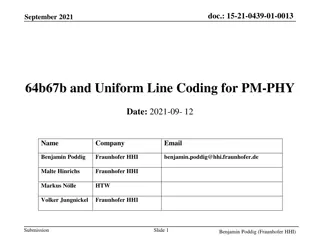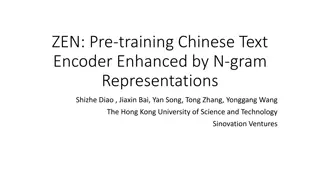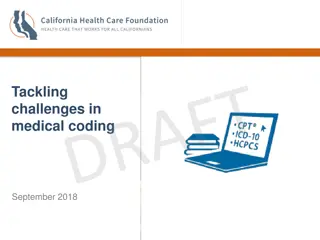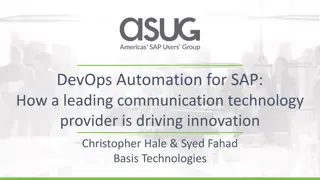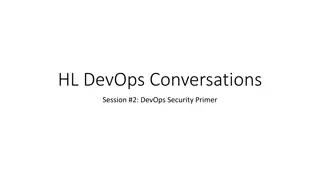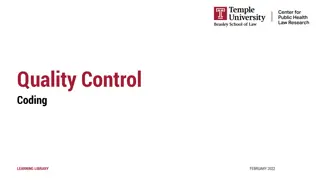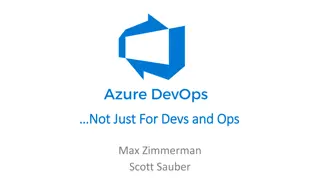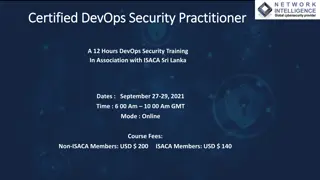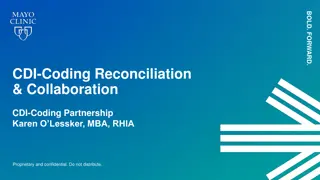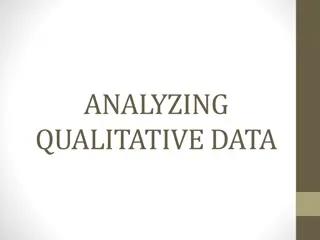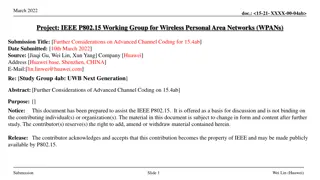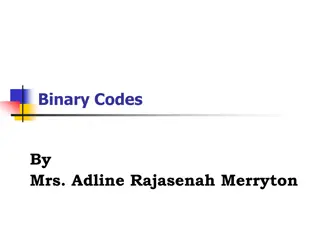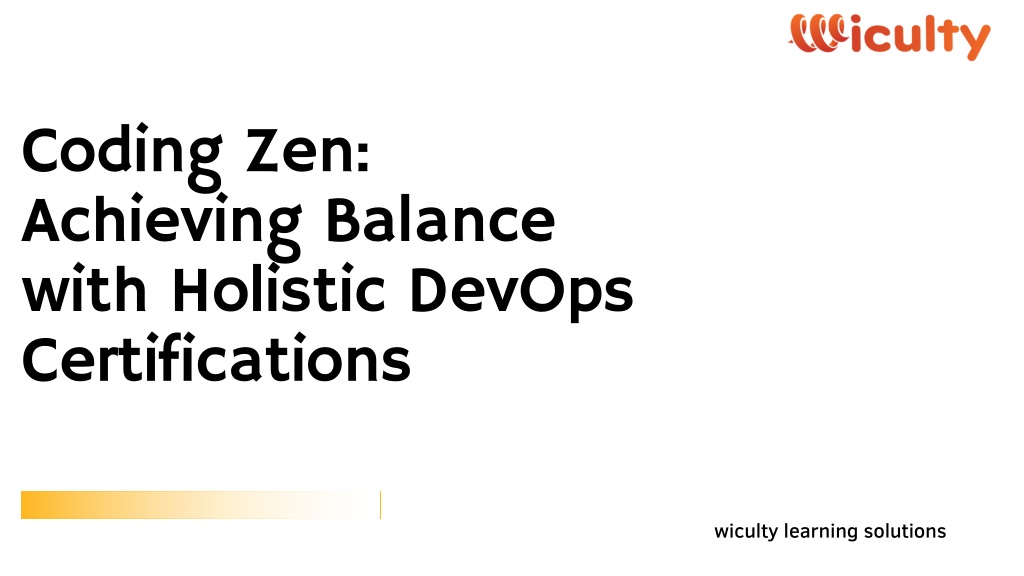
Coding Zen Achieving Balance with Holistic DevOps Certifications
Achieving Coding Zen is about more than mastering technical skills; it's about fostering a balanced, mindful approach to DevOps. Holistic DevOps certifications play a crucial role in this journey, offering comprehensive training that blends technical
Download Presentation

Please find below an Image/Link to download the presentation.
The content on the website is provided AS IS for your information and personal use only. It may not be sold, licensed, or shared on other websites without obtaining consent from the author. Download presentation by click this link. If you encounter any issues during the download, it is possible that the publisher has removed the file from their server.
E N D
Presentation Transcript
Coding Zen: Achieving Balance with Holistic DevOps Certifications wiculty learning solutions
In the fast-paced world of technology, finding balance is crucial. The concept of "Coding Zen" captures this need, emphasizing a harmonious approach to software development. Holistic DevOps certifications are pivotal in achieving this balance, blending technical prowess with a mindful approach to development and operations. Here's how embracing these certifications can lead to a more balanced and efficient DevOps environment.
Understanding Coding Zen Coding Zen is more than just a catchy phrase; it embodies a philosophy where developers and operations teams work in harmony. This philosophy encourages: - Mindfulness in Coding: Developers are encouraged to write clean, efficient, and sustainable code. - Seamless Collaboration: Teams work together seamlessly, reducing friction and enhancing productivity. - Continuous Learning and Adaptation: Emphasizing the importance of staying current with industry trends and technologies.
The Role of Holistic DevOps Certifications Holistic DevOps certifications provide a comprehensive framework that covers not only technical skills but also the soft skills necessary for creating a balanced DevOps culture. Here's why they are essential: 1. Comprehensive Skill Development - Technical Expertise: Certifications cover a wide range of DevOps tools and technologies, ensuring that professionals are proficient in automation, continuous integration/continuous deployment (CI/CD), cloud services, and more. - Soft Skills: Courses often include training on communication, collaboration, and problem-solving, which are critical for effective teamwork and project management.
2. Encouraging a Growth Mindset - Continuous Learning: Holistic certifications promote a culture of continuous improvement, encouraging professionals to stay updated with the latest trends and advancements in DevOps. - Adaptability: In a rapidly evolving tech landscape, the ability to adapt and learn is invaluable. Certifications that emphasize a growth mindset help professionals stay agile and responsive to change. 3. Enhanced Collaboration and Communication - Unified Language: With a standardized certification, teams share a common understanding and language, which improves communication and reduces misunderstandings. - Cross-functional Teams: Certifications prepare professionals to work effectively in diverse teams, breaking down silos and fostering a collaborative culture.
Key Holistic DevOps Certifications Several certifications stand out for their comprehensive approach to DevOps: - Certified DevOps Professional (CDOP): Focuses on advanced DevOps practices, including automation, monitoring, and security, along with leadership and team management skills. - AWS Certified DevOps Engineer: Combines technical training on AWS services with best practices for building scalable and resilient applications. - Google Professional DevOps Engineer: Emphasizes site reliability engineering (SRE) principles, automation, and continuous delivery using Google Cloud technologies. - Microsoft Certified: DevOps Engineer Expert: Covers Azure DevOps practices, including development, delivery, and operational aspects, along with soft skills like collaboration and communication.
Integrating Augmented and Virtual Reality Incorporating augmented and virtual reality (AR/VR) into DevOps training can further enhance the learning experience. AR/VR technologies provide immersive environments for: - Simulating Real-world Scenarios: Trainees can practice troubleshooting and deployment in virtual environments that mimic real-world conditions. - Interactive Learning: Hands-on experience in a virtual setting helps reinforce concepts and improves retention. - Remote Collaboration: Virtual environments enable remote teams to collaborate and learn together, breaking geographical barriers.
Conclusion Achieving Coding Zen is about more than mastering technical skills; it's about fostering a balanced, mindful approach to DevOps. Holistic DevOps certifications play a crucial role in this journey, offering comprehensive training that blends technical proficiency with essential soft skills. By embracing these certifications, professionals can create a more harmonious and productive DevOps environment, leading to better outcomes and a healthier work-life balance.

